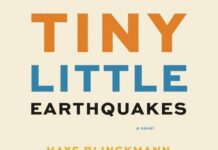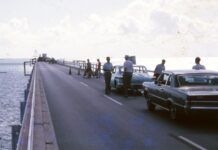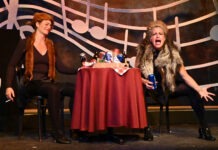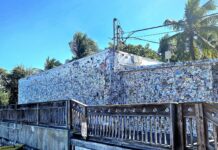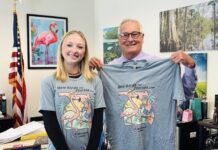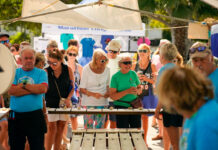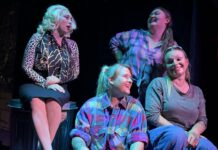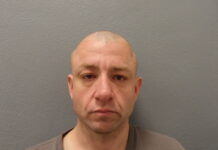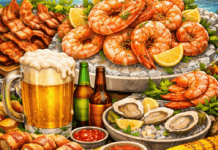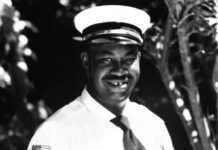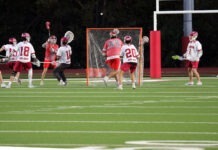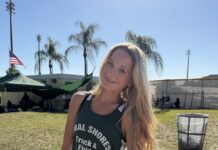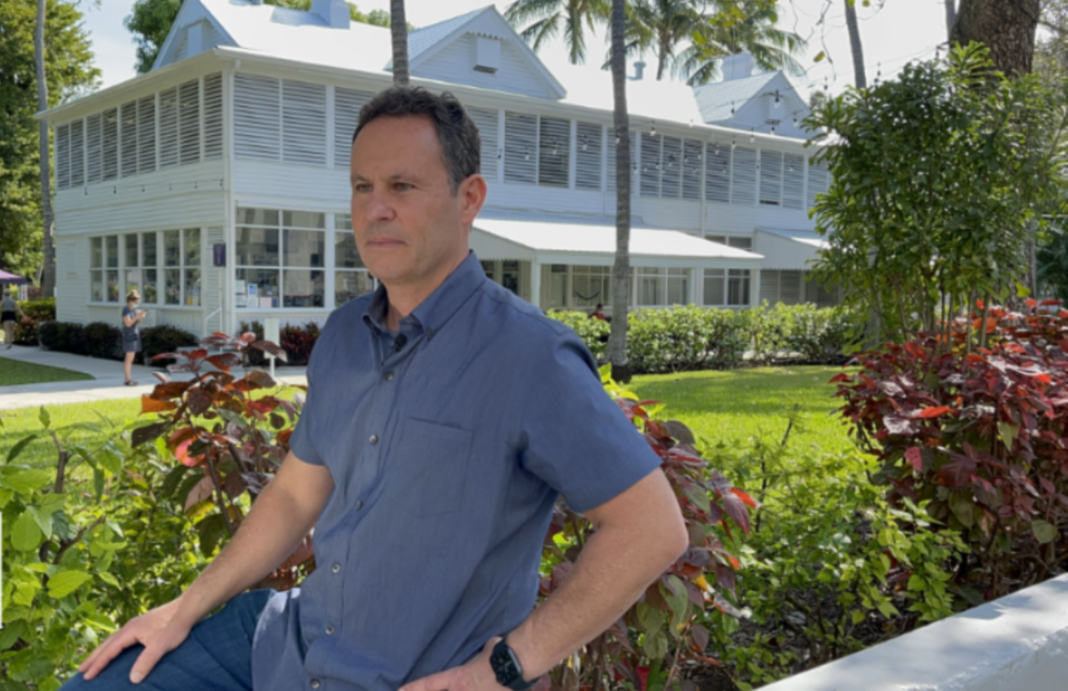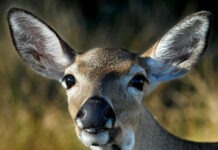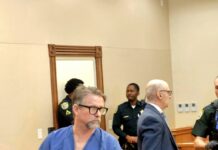Most know Brian Kilmeade as the charismatic personality that drives Fox News’ morning show, “Fox and Friends.” And while political undercurrents and public opinion tend to enunciate the narratives that viewers fasten to television personalities, rarely does the general public gain behind-the-screen access to the actual person. Such is the case with Brian Kilmeade.
Kilmeade, who recently visited Key West to film a segment of his Fox Nation history series “What Made America Great,” is anything but the typical news anchor. An author of six books and a five-time New York Times bestseller, Kilmeade cut his teeth in the news industry working his way through the ranks before becoming one of the most recognizable faces and voices on the national media stage as a television and radio host for Fox.
And yet, after nearly three decades in television and media, Kilmeade’s stardom has allowed him to push the limits of his past and revisit his unwavering passion for history. Today, “What Made America Great” is entering its sixth season on Fox’s on-demand streaming service, Fox Nation. According to the show’s homepage, “What Made America Great” allows viewers to “explore the places that shaped our amazing country, and finds the hidden secrets that you might think had been buried by time.”
While in Key West, Kilmeade visited the iconic Harry S. Truman Little White House to film a recent episode of “What Made America Great.” And while we cannot divulge too many spoilers, it’s safe to say Kilmeade and his team accomplished their agenda — uncovering amazing secrets behind one of Key West’s most notable landmarks — and offering a finished product that even locals will appreciate.
Following production in Key West, the Keys Weekly caught up with Kilmeade to learn more about his trip to the Southernmost City and why Truman’s Little White House made his list among an array of popular historic sites throughout the U.S. What we found (aside from Kilmeade’s humble approach to his craft and success) was an astute appreciation for our nation’s history, that took root in Kilmeade’s adolescence, and a journey that has granted him access to some of the world’s most prominent figures, while he managed to shape a bit of history himself.
KW: How did you choose Key West and Truman’s Little White House as the subject of an episode of “What Made America Great?”
BK: Number one, Florida is open, so we were looking for a place that would allow us to do stuff in the middle of the pandemic, and Florida gave us a shot at doing it. We thought it would be a great idea to come down, so we combined it with a shoot we did on Little Havana for next season, so we were able to do two shoots on one trip.
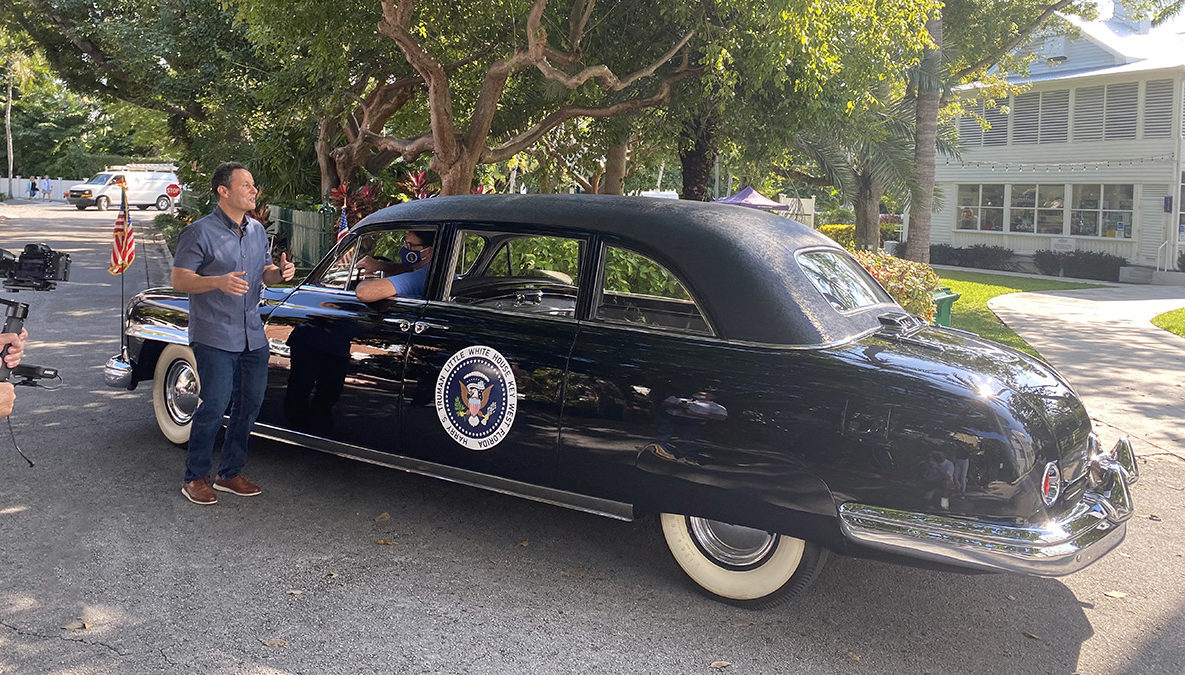
KW: But what intrigued you about Harry S. Truman and his Little White House?
BK: I’ve always been fascinated by Truman and to find out about this Little White House in the Keys and the little details about it — I just thought ‘this could be great.’ I never knew it was going to be that good. I hope you like that final feature. I just thought it was fascinating.
KW: Any teasers or spoilers you can reveal that fascinated or surprised you?
BK: Number one, Truman knew he needed time to relax. I had no idea about his passion for poker. I had no idea that he started his day with a shot. I had no idea that gambling back then was something you should not be talking about, so they covered up the poker table. I think you just get a real perspective on how smart, yet simple a person he was. There’s not a lot of opulence. It’s not a palace. He needed the basics. It’s definitely some Midwest for a guy living in the South.
KW: You’ve written six books and five of them have landed on the New York Times bestseller list. Can you shed some light on where your passion for history originated?
BK: Everyone had a favorite subject and mine was social studies. I was always that kid who would absorb it quickly. When The History Channel came out, I was glued to it until it became all reality shows. I’ve always loved documentaries. I used to watch Mike Wallace and his interviews with Eleanor Roosevelt and his features on Thomas Edison. But what really sold me was when Harry Truman wrote a book about historical figures.
KW: What about Truman’s book inspired you?
BK: He didn’t write about himself. He was such a history buff and he humanized the founding fathers. He talked about Thomas Jefferson being 6’3” with reddish hair and freckles. He talks about George Washington being self-conscious about his teeth and his education. He talked about things like James Madison being very short and sickly. I’m reading this book about historical figures by Harry Truman. I just thought, ‘I can’t believe these statues, busts and paintings were real people.’ And then I was fascinated by the fact that we can visit their homes at the Hermitage and Monticello and Mt. Vernon. I like world history because I want broad knowledge. But I love American history because I can go to it.
KW: Had you visited the Keys before this trip?
BK: I had visited just once, but I did not know the Little White House existed. And the fact that Admiral Nimitz recommended it to [Truman]. [I didn’t know] you guys have a naval base there, or that they rebuilt [the Little White House] exactly as it was. And then to be lucky enough to get there shortly after they delivered one of Truman’s presidential limousines. After we left, we went and found the footage, it looks exactly as it did when Truman was there. You almost expect him to show up.
KW: This is your sixth season on Fox Nation with “What Made America Great.” Are there any places or sites along this journey that hold a special memory or experience for you?
BK: Going to Mount Rushmore and walking up the back of the mountain and seeing that shaft that was supposed to house the original Constitution and Bill of Rights was amazing. Sitting on top of Lincoln’s head was pretty amazing and seeing how they put it all together with the scale models they used to create it…there’s not much better than that. I also thought it was pretty cool going to the Hermitage, because they’ve gone a long way to restoring it exactly as Andrew Jackson left it.
KW: Why is it important to you to share America’s history with viewers?
BK: What I really like is how we’re highlighting things that America, in many cases, doesn’t appreciate or know about. And they’ll drop the velvet ropes and let us in. The best thing is people will come up to me afterwards and say ‘I never knew that place existed and I went to visit it.’
KW: Most people know you from Fox and Friends on weekday mornings or from Fox Radio. But most probably don’t realize how many hours a week you put into your work. What does a regular week look like for you?
BK: I’m on the air six hours a day. I’m up at 3 in the morning. That’s when I do most of my studying. And then there’s a Wednesday when I fill in for Tucker. And then two weeks ago they asked me to fill in to do the seven o’clock for a full week. I fill the five [o’clock segment] when they need me. It’s like a big gym. Once you are in there and they ask you to help out, you just try to help wherever you can. To me it’s not really work. You just try to keep up with all of the storylines, try to get insight and work your contacts. But in our business, you never know when it’s going to end, so I never take it for granted.
KW: You also have three kids and you’re a respected family guy. How do you balance the demands of work, writing books and raising a family?
BK: The good thing about a morning show is it’s great when you’re a parent. I can literally make all of the [kids’] games after putting in 10 hours. I’m up at 3. I’m off at 12. I can be there for a 3 p.m. practice or 4 p.m. game. Outside of major events, like the Inauguration or the Super Bowl, I’m available on weekends. I don’t have the key to parenting. But I think it just starts with caring. I think about them all the time, what I can do better and how I can help more.
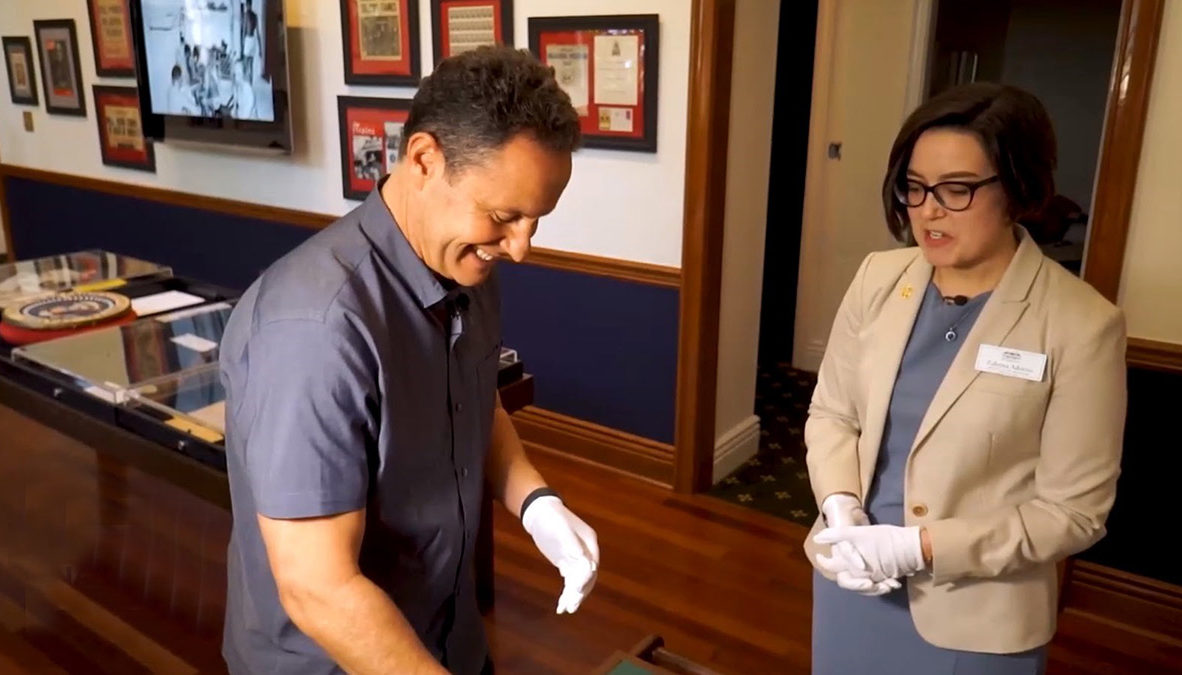
KW: You’ve interviewed hundreds of celebrities, athletes and world leaders. Who are some of your most memorable?
BK: I was able to golf with George W. Bush at a celebrity event and then hang out with him after. I think he’s one of the finest people I could ever meet, especially with what he went through with the Iraq War and the 9/11 attacks, who his dad was and who his family is. When my mom passed away, he wrote me a personal letter talking about what it’s like to lose a parent. That will always stand out to me. Also, I remember going to the Super Bowl and Dwayne Johnson coming up to me and telling me how much he likes watching me on TV. That was one of the most surreal experiences. And lastly, I interviewed Trump one week before he declared [his candidacy] and he asked me, ‘Do you think I should run?’ and I said, ‘Yes.’ So I was his last interview before he became a candidate and I was his last face-to-face interview as President.
KW: Speaking of Trump, the title of your show is “What Made America Great.” Did Trump borrow your title?
BK: No, I think it was more a response to everyone questioning the foundation of the country; everyone taking knees during games and let’s work on the curriculum of social studies. It wasn’t just me, it was collaborative, but we said, ‘Let’s just take a step back and talk about the commonality of what made America great. I don’t want Republicans or Democrats. I’m going to talk about the commonality of great moments in our country’s past that don’t get enough attention.’ So it should not be something that gets a family in an argument.
KW: Your early years in media were spent covering sports and you were a big part of the UFC’s early success. Do you still watch the UFC and can you give us a prediction for the Super Bowl?
BK: I did the first four UFCs. The way it came about is I did stand-up comedy for about 10 years in Los Angeles. My producer Campbell McLaren called me over and showed me tapes of the Gracies fighting people on the beach in Brazil. Then he showed me people fighting in the ring and said, ‘You see the guy at the bottom? He’s actually winning.’ Then he tells me they’re going to put these guys in an octagon and promote it with, ‘Someone could die tonight’ and I told him, ‘You can’t do that. No one will watch it, that’s crazy.’ So they asked me to get Jim Brown, who I was doing a radio show with at the time. We both committed to doing it and I ended up being ringside and calling the fights for the first four.
KW: But a lot of people fought against the UFC and mixed martial arts back then?
BK: All I would say is I realized at that time, the tougher you are, the nicer you are. All of these guys, the most ruthless and toughest guys, were the nicest guys. They were making almost no money and all had side jobs. But they were all lethal weapons. And they walk around so humble and I just thought to myself, those guys know what toughness is. At the time, people like John McCain fought against it and then when Dana White took it over, he put in rounds, rules and weight classes. It’s bigger than boxing today and no one would have predicted that.
KW: Do you have a Super Bowl prediction?
BK:. I think the Bucs are the team that’s gotten better and they’re the team that’s going to win.
KW: Last question. You got your start in media working for Channel 1 news that was broadcast into high schools back in the mid ‘90s. Coincidently, Anderson Cooper got his start at Channel 1 as well. Today, you guys are two of the most recognizable faces on the news and at competing companies. Did you cross paths back then?
BK: No. They hired me to do like 25 stories, but it was so fractured, I only went in there one time. I was usually on location. And as for Cooper, I’m not on his level. He’s a big name and even at the time he was a big name. So I never met him, but it was an invaluable experience. I was in my 20s and the producers did everything. They even wrote my standups, which I hated. But it taught you how to go out and shoot it yourself and organize it all. They put together a professional product, so I was able to show that tape to people and it looked like MTV stuff with quick pictures and a lot of sounds and it helped me get work.
KW: Thanks for taking time with us and we hope to see you back in Key West soon.
BK: Absolutely. Hopefully more people go to the Little White House. For more on Brian Kilmeade and “What Made America Great” visit www.FoxNation.com
